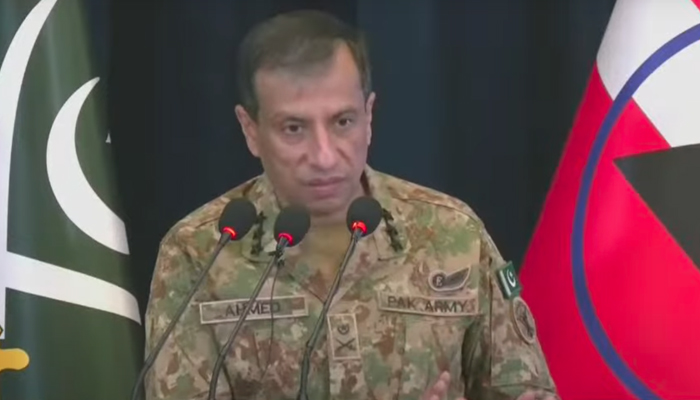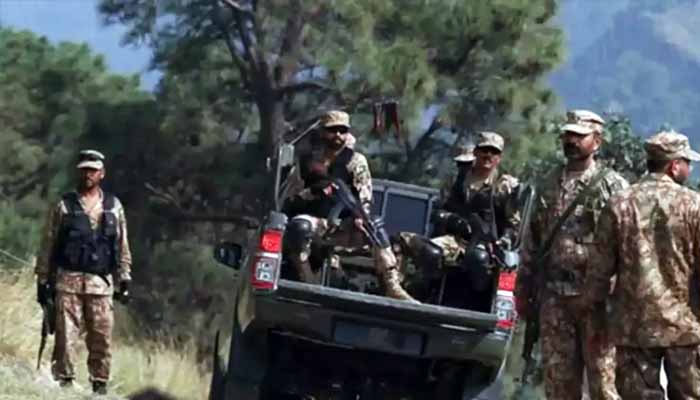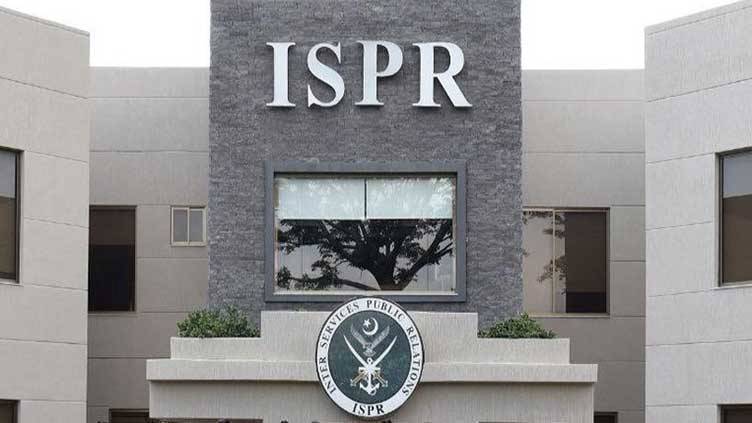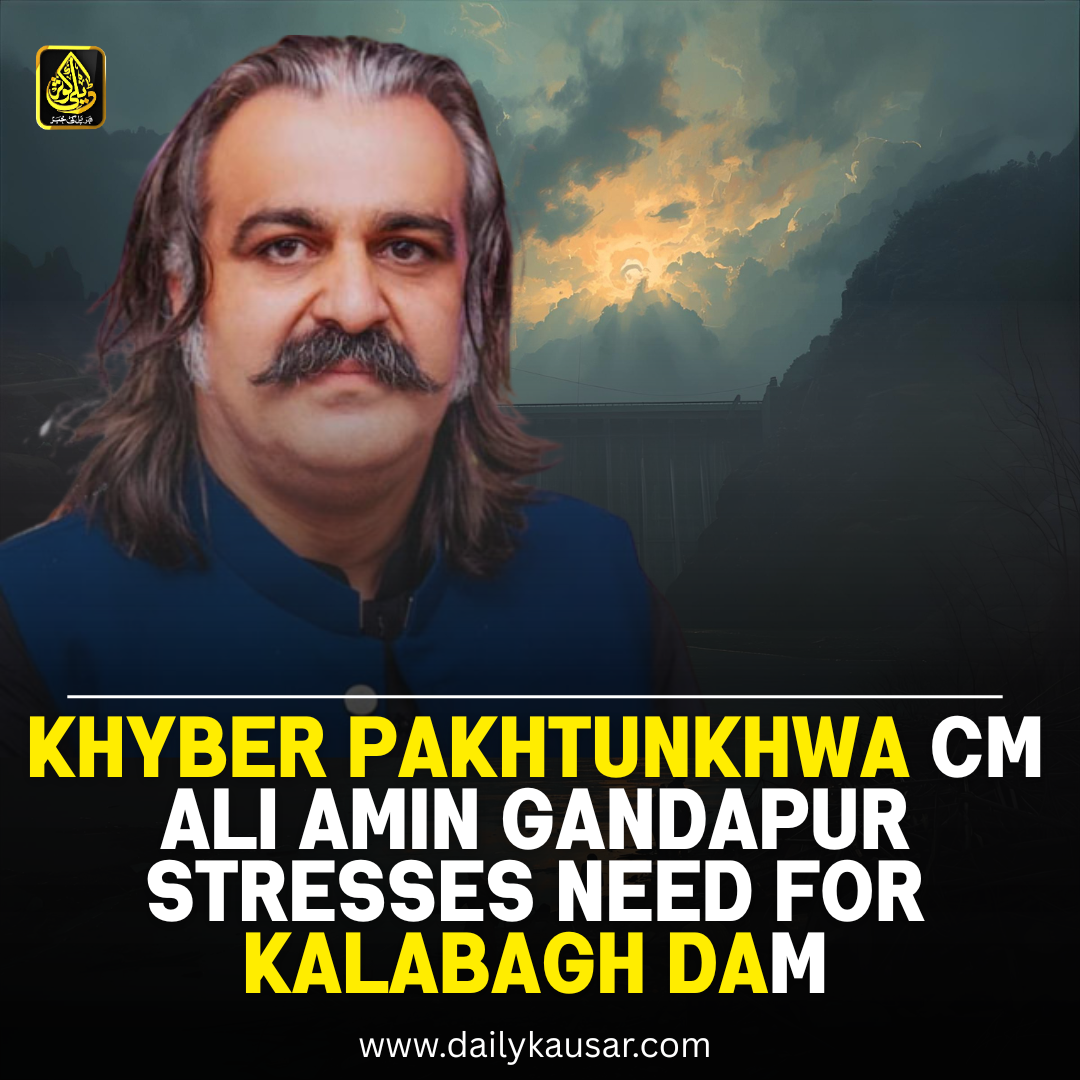Overview — Complete Summary of the Briefing
PESHAWAR: Director General Inter-Services Public Relations (DG ISPR) Lt. Gen. Ahmed Sharif Chaudhry has said that the ongoing wave of terrorism in Khyber Pakhtunkhwa (KP) is the result of a “political and criminal nexus” that deliberately created space for militants and their facilitators. Speaking at a media briefing in Peshawar, he paid tribute to the brave people of KP and the sacrifices made by the security forces in the war against terror.
He revealed that over 14,500 operations were conducted across KP this year, adding that the number of terrorists — including foreign militants — killed in 2024 exceeds figures from the past decade. The DG ISPR reiterated that the Pakistan Army remains resolute in its mission to root out terrorism from the country.
Pakistan Welcomes Hamas’ Positive Response to Trump’s Gaza Ceasefire Plan
Operations and Key Statistics
Lt. Gen. Chaudhry shared that intelligence-based operations (IBOs) were conducted across the province, resulting in the elimination of hundreds of terrorists. He noted that the foreign militants killed this year outnumber those in the last ten years combined, highlighting the scale of Pakistan’s counterterrorism efforts.
He also pointed out that despite continuous operations, some actors provided ideological, political, or logistical space to militants — a factor that needs to be addressed through unified national action.
National Action Plan and Governance Gaps
Referring to the National Action Plan (NAP) formulated after the 2014 Army Public School (APS) attack, the DG ISPR said the resurgence of terrorism is partly due to incomplete implementation of the NAP. He emphasized that political and military leaderships must jointly ensure its full enforcement.
He acknowledged that in KP, security forces are compensating for governance gaps with their blood, underscoring the need for administrative and political responsibility at the provincial level.
PPP Walks Out of National Assembly Over Maryam Nawaz’s Statement
External Factors: Afghanistan and Regional Challenges
Lt. Gen. Chaudhry said that terrorist sanctuaries still exist in Afghanistan, and many of the militants neutralized in Pakistan had links to groups operating from Afghan soil. He stated that India is using Afghan territory as a base to destabilize Pakistan and that a significant portion of weapons left behind after the U.S. withdrawal from Afghanistan has ended up in the hands of terrorists.
He added that Pakistan has provided concrete evidence of this to international forums and continues to engage diplomatically to address the threat.
Afghan Refugees and Misleading Narratives
The DG ISPR criticized the political exploitation of the Afghan refugees’ repatriation issue, saying Pakistan hosted millions of Afghan brothers for decades, yet when the state decided on their regulated return, it was politicized.
He clarified that many of the terrorists killed in recent operations were Afghan nationals and that American-made weapons were recovered from them — evidence of cross-border facilitation. Pakistan, he said, only demands that Afghanistan must not allow its soil to be used against any country, particularly Pakistan.
Political Accountability and Facilitators
Lt. Gen. Chaudhry stressed that all politicians are respectable, but no individual’s politics can be above the state. He warned that anyone found facilitating or supporting terrorists, directly or indirectly, will face severe consequences — regardless of their position or status.
He urged politicians not to drag the armed forces into political controversies or spread disinformation through propaganda campaigns.
Police and CTD Strengthening
The DG ISPR highlighted that while KP Police and the Counter-Terrorism Department (CTD) have shown immense bravery, their limited manpower — reportedly around 3,200 personnel — remains insufficient given the province’s threat level. He reiterated the need to strengthen provincial law enforcement agencies to ensure long-term stability and security.
Three Clear Choices for Facilitators
Lt. Gen. Chaudhry outlined three options for those assisting militants or “foreign elements”:
-
Hand over terrorists to the state.
-
Join hands with national institutions to fight terrorism.
-
Prepare for strict state action if continuing to facilitate militants.
He stated, “The status quo will not be accepted any longer.”
Future Strategy and Public Assurance
The DG ISPR reaffirmed Pakistan Army’s determination to protect citizens’ lives and property, asserting that any threat to national security will be dealt with decisively. He emphasized that the entire nation stands united — “like a solid wall” — against terrorists and their supporters.
Public and Expert Reactions
Analysts and journalists viewed the DG ISPR’s briefing as both a warning and reassurance: a warning to political actors allegedly involved in militant facilitation, and reassurance to citizens that the security establishment remains fully committed to eliminating terrorism.
Experts have urged the government to fill administrative gaps and support counterterrorism forces through better coordination and policy continuity.
Conclusion — A National Responsibility
The DG ISPR’s address in Peshawar highlights a crucial message: terrorism cannot be defeated by force alone. It requires a unified political vision, strict governance, and coordinated security measures.
Pakistan’s success in this fight depends equally on military strength, political integrity, and public awareness — ensuring that no political or criminal network can again exploit the nation’s vulnerabilities.




One thought on “Political-Criminal Nexus Behind KP Terrorism, Says DG ISPR Lt. Gen. Ahmed Sharif Chaudhry”